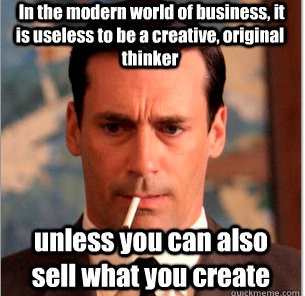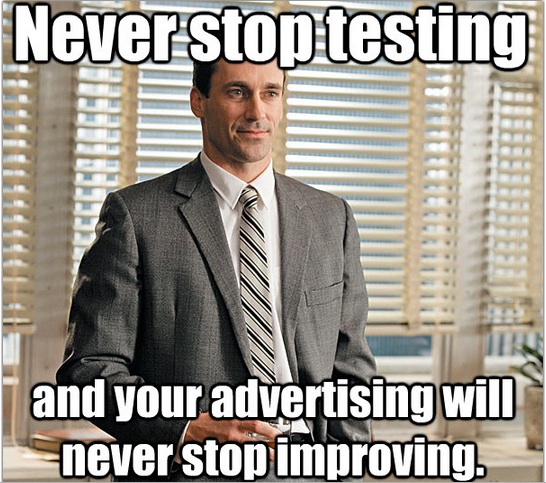
Before there was Don Draper, there was David Ogilvy. “The father of advertising,” as he is sometimes referred to, was all about valuing the consumer’s intelligence, testing and “the big idea.” He helped forge a new, creative path for advertising in the ’60s that we now all look back on as the Golden Age of the advertising industry.
Unsurprisingly, a lot of what Ogilvy had to say back then still applies to the industry today — and it is perhaps even more important to remember some of his soundbites now with technology and the pace of the digital world forcing advertisers to be faster, more agile and more creative in real time.
Here are five David Ogilvyisms — shown as Don Draper macros, because why not? — that are still relevant today.
1. “In the modern world of business, it is useless to be a creative, original thinker unless you can also sell what you create.”
2. “Never stop testing, and your advertising will never stop improving.”
3. “Big ideas are usually simple ideas.”
4. “The best ideas come as jokes. Make your thinking as funny as possible.”
5. “Our business is infested with idiots who try to impress by using pretentious jargon.”
Photo of David Ogilvy via Wikimedia Commons
More in Marketing

Pitch deck: How Amazon is recasting Twitch as a core part of its CTV pitch
Amazon is positioning Twitch as a defining asset in its CTV ambitions.

Netflix transforms former mall department stores into experiential venues
The location in Dallas opens this week, and one at the King of Prussia mall near Philadelphia opened last month.

Future of Marketing Briefing: AI has created a new talent paradox in programmatic agencies
The job isn’t execution anymore. AI handles that. The job is judgement.










